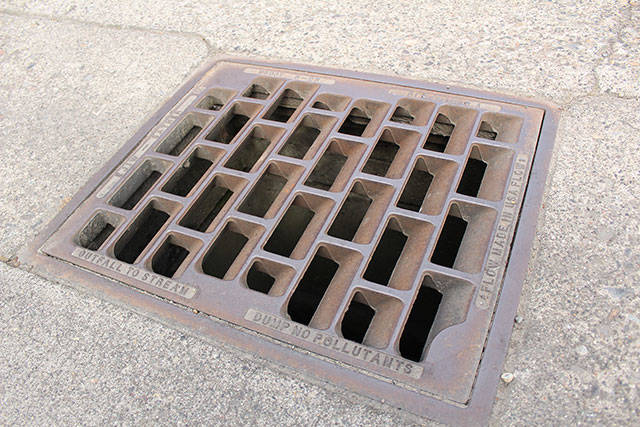Most rates have remained exactly where they were last year, but one has climbed a bit in the world of Enumclaw utilities.
Increases implemented by City Hall typically take effect Jan. 1.
Enumclaw operates five utilities, some limited to in-city customers and some offered to residents slightly outside the municipal boundaries. Those include garbage/recycling/yard waste collection, sewer, water, natural gas and stormwater.
The lone increase has come with the city’s effort to deal with stormwater. Enumclaw had been something of a rarity among Puget Sound cities and towns, paying for stormwater services from its general fund. That meant stormwater competed for dollars with other municipal functions like police protection, parks and recreation, and services for youth and senior citizens. After lengthy discussion, a wastewater utility was agreed to and the city began assessing its customers in the fall of 2018.
It didn’t take long to discover that revenues weren’t meeting expenses.
Public Works Director Jeff Lincoln went before the City Council in November, spelling out reasons why the current rate simply isn’t enough to keep the stormwater utility operating on a break-even basis.
In a memo to the council, Lincoln wrote, “it became abundantly clear that the rate of $5.24 was not sustainable.” The options, he said, were a substantial subsidy from the city’s general fund or a rate increase.
The monthly charge of $5.24 has been assessed for each “equivalent service unit” (ESU) in town. That charge applies to single-family homes but increases for businesses, apartment complexes, etc., depending upon the number of ESUs they’re assessed.
A new monthly rate of $6.50 per ESU was both recommended and approved by council. The difference amounts to $1.26 per month for the average homeowner or a bit more than $15 annually. The increase took effect with the start of the year.
The news for 2020 is better on the water and sewer fronts. Also in November, the City Council agreed that increases were not needed to make ends meet.
Water and sewer are classified as “enterprise funds,” meaning they must be self-sufficient.
It took direct action by the council to avoid increases. The Enumclaw Municipal Code dictates that water and sewer rates are to be adjusted annually, tied to the Consumer Price Index for the Seattle-Tacoma area.
Lincoln explained that anticipated 2020 revenues should be sufficient. For water, taking the CPI increase would have meant an additional $101,200 next year; however, anticipated revenues, combined with cash reserves, are expected to allow the water utility to survive without a rate increase.
The sewer utility expects to take in almost $4.4 million next year and can exist without the CPI adjustment of $131,500, Lincoln wrote in a council memo.
The base charge for all sewer customers is $27.55 per month and includes no consumption.
After the base rate is applied, individual sewer charges are determined by water usage during the winter months. According to the city website, that assures customers are not assessed sewer charges for lawn and garden irrigation, car washing and other outdoor uses where the water does not enter the sewer system.
When it comes to water, monthly bills are determined by meter size and actual consumption. This is an instance where the city provides service outside its boundaries; those customers pay 50 percent more than those residing inside the city limits.
Rates for solid waste collection went through a restructuring process a year ago, resulting in higher-than-anticipated revenues for 2019 and no need for an increase this time around, Search said.
Natural gas rates for customers also will remain as they were in 2019.


